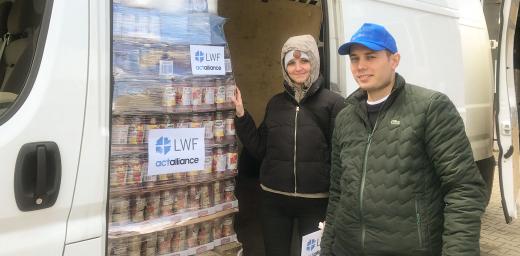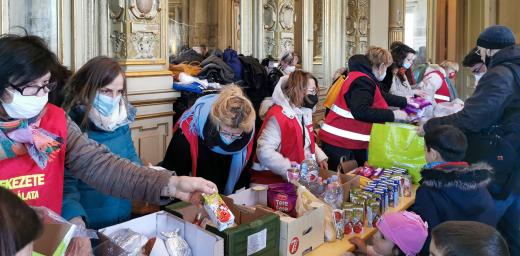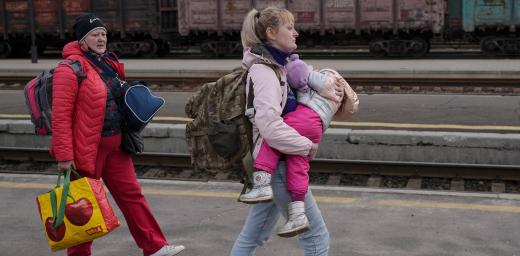Humanitarian adventures of a globetrotting Scotsman
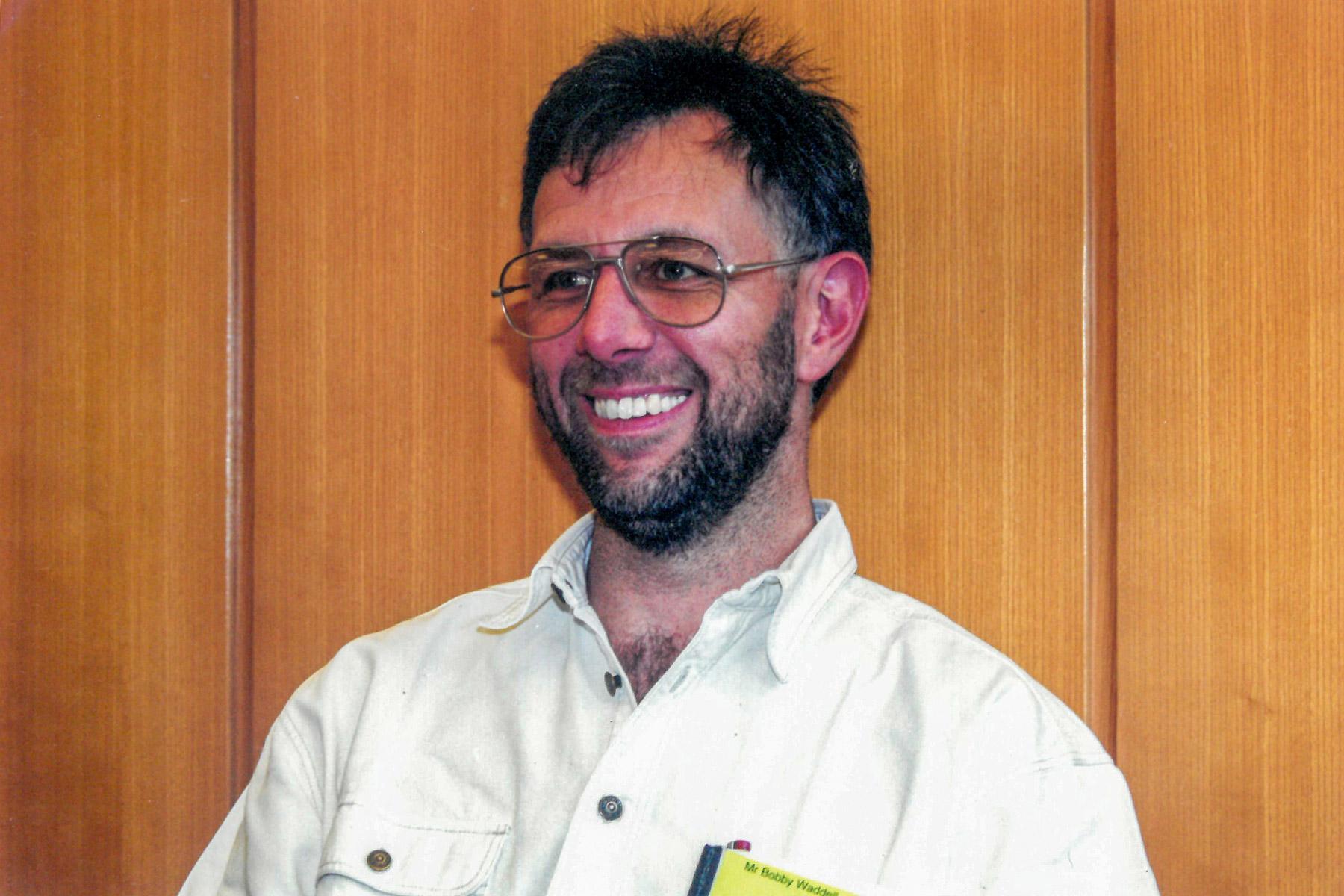
Bobby Waddell, serving as LWFâs Country Representative in Kenya and South Sudan, taken during a Field Directorsâ meeting in Geneva in October 2000. Photo: LWF/C. RothenbuhlerÂ
LWF’s longest serving employee reflects on the values and virtues that underpin the work of LWF World Service staff
(LWI) - At first sight, the position of Global Funding Coordinator with The Lutheran World Federation (LWF) does not seem like a very exciting or dramatic career option. Nor does the softly-spoken Scotsman, who has been doing that job for the past seven years, seem, at first glance, like someone with a particularly adventurous past. Bobby Waddell lists golf, travel and DIY as his favorite hobbies that he hopes to be able to pursue when he retires in a few years' time.
But appearances can be deceptive. Waddell, who is LWF’s longest serving employee, counts being held at gunpoint in Haiti and narrowly avoiding an arson attack in Uganda as two of the most dramatic moments of his 35-year career with the organization. In 1994, he was in Rwanda responding to the needs of genocide survivors. In 2002, he was in West Africa investigating allegations of sexual abuse by humanitarian workers. In 2010, he was back in Haiti, bringing emergency aid to survivors of the earthquake that devastated much of the capital, Port-au-Prince.
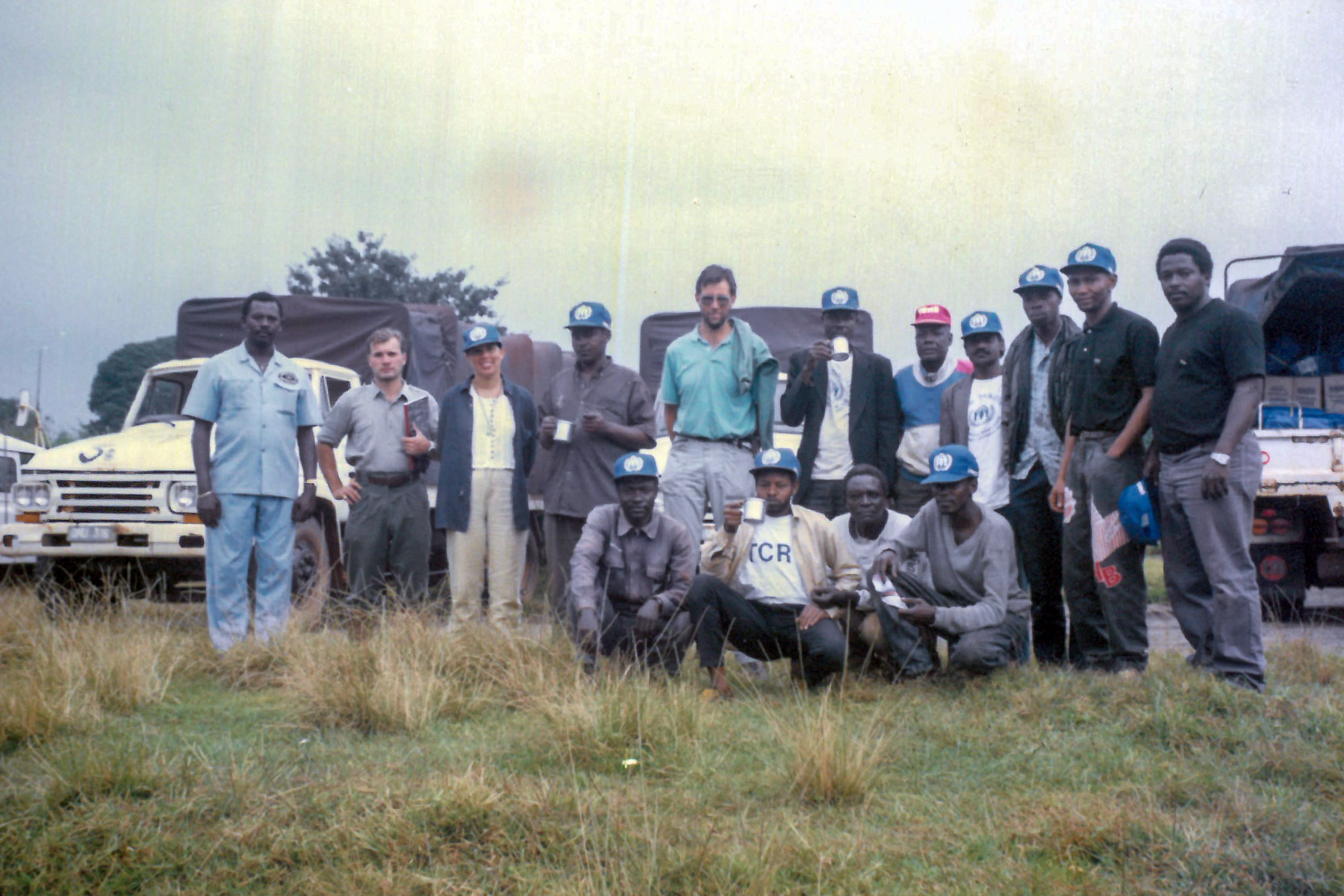
Bobby Waddell with colleagues from the Tanganyika Christian Refugee Service responding to the crisis in Rwanda in July 1994. Photo: TCRS
Since joining the LWF in Tanzania (then known as the Tanganyika Christian Refugee Service) as an agricultural project officer in 1986, Waddell has worked in, or visited, all but four of its 27 World Service country programs. When pushed to pick a favorite among the various places he has worked, he cites Tanzania as the country where he met his wife, where his first child was born and where he still keeps in close contact with colleagues in the field. “Each country has its own beauty, its own challenges,” he says, but “I still have a love for that country, its people and the way they opened up to all the refugees from neighboring nations without getting drawn into regional conflicts.”
Flexibility and lifelong learning
After growing up in a farming community in Scotland, Waddell studied agriculture at university, before travelling to Pemba Island, off the coast of Tanzania, as a volunteer teacher for high school children studying crop and soil sciences. He learnt Swahili and thoroughly enjoyed being “thrown in at the deep end of this exciting new experience.” Two years later, he was back in the UK at a de-briefing day with Voluntary Services Overseas, when he saw the advertisement for an agricultural officer in Tanzania. “I had never heard of the LWF back then,” he says, but today he has a unique overview of its work, having served in a wide variety of roles with the organization ever since.
“I have done so many different jobs that it never gets boring and the opportunities have been amazing,” he says, adding that it has been an experience of “lifelong learning since day one.” One of the most important skills required by anyone joining the LWF’s World Service team is flexibility, Waddell says, because “you’ll be asked to do things you never expect to do.” Whenever a call came from Geneva asking him to relocate at short notice to a country in crisis, he always asked for time “to sleep on it, before saying yes the following morning.”
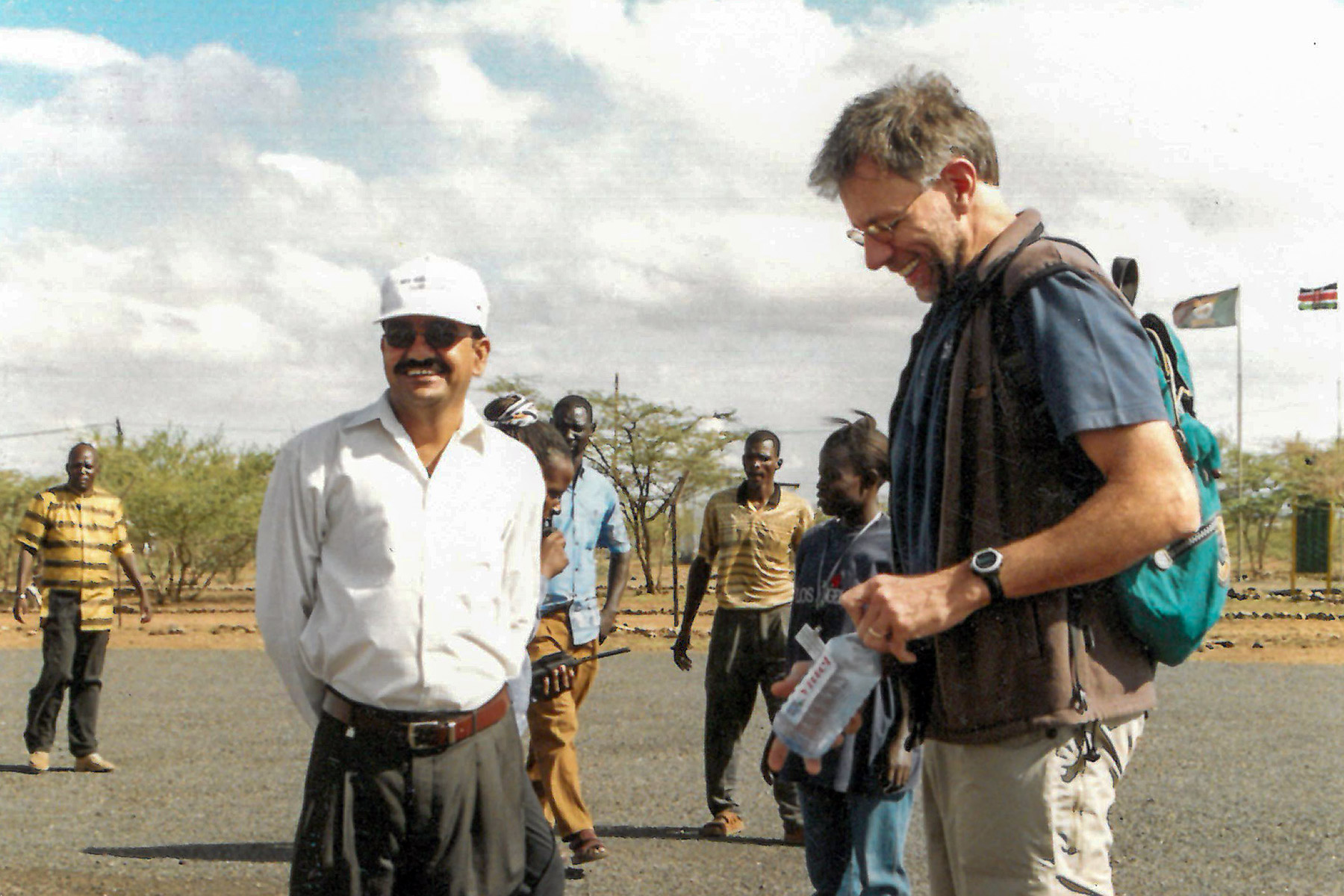
Bobby Waddell serving as Country Representative for LWF’s Kenya/Sudan program during a visit to Kakuma refugee camp in northern Kenya, with camp manager Tulasi Sharma. Photo: LWF Kenya
From Tanzania, he moved to Botswana and then on to Haiti, from where he and his family were evacuated twice due to the high levels of violence and political unrest. It was in Port-au-Prince that he and a couple of colleagues were held up by two youths with guns demanding the keys of their car as they left the Holiday Inn Hotel. When Waddell threw the keys to the ground, one of the gunmen fired at him, while the other grabbed the keys and the two disappeared into a nearby park. To this day, in typically understated style, he says, “I don’t know if it was a blank, or if they were just a bad aim, but they didn’t hit me so we had a very lucky escape!”
Concerned about the family’s safety, Waddell decided to leave Haiti and was offered a job in Adjumani in northern Uganda, with housing for his wife and children in the capital, Kampala. He turned the offer down as it meant living apart from the family for long stretches of time. Shortly afterwards, the compound in Adjumani was attacked and burnt by fighters from the Lord’s Resistance Army.
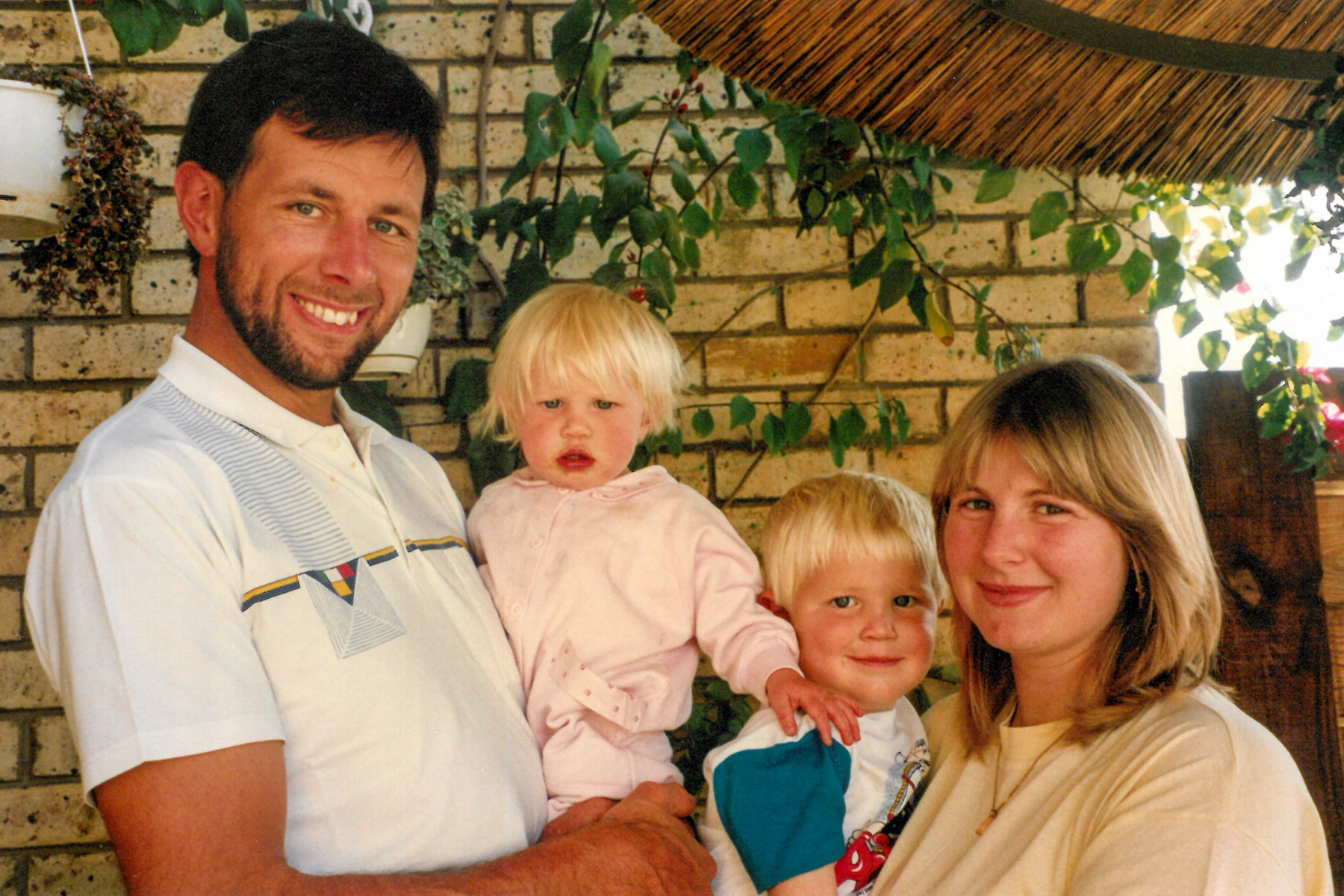
LWF’s Bobby Waddell with his wife, Jenny, and children, Christopher and Emily, in Gaborone, Botswana in 1992
In the meantime, in the summer of 1994, Waddell was sent to Rwanda to start up an LWF program in the wake of the genocide that claimed hundreds of thousands of lives and caused 2 million people to flee to neighboring countries. During the day, he distributed non-food items for both internally displaced people and refugees coming back across the border from the Democratic Republic of Congo. At night, he sat in a small tent writing essays for a Master correspondence course in Environmental Management, an experience he describes as “slightly unreal.”
No matter what job you are doing, you need to go to the field to learn how things work.
However challenging these experiences may have been, Waddell says they served him well for the job he does today, coordinating the global funding team and ensuring financial stability for LWF’s work with some of the world’s most vulnerable communities. “No matter what job you are doing, I tell colleagues you need to go to the field to learn how things work,” he says. He counts “learning from great colleagues and lifelong friends” he has made in the field as one of the most valuable aspects of his career.
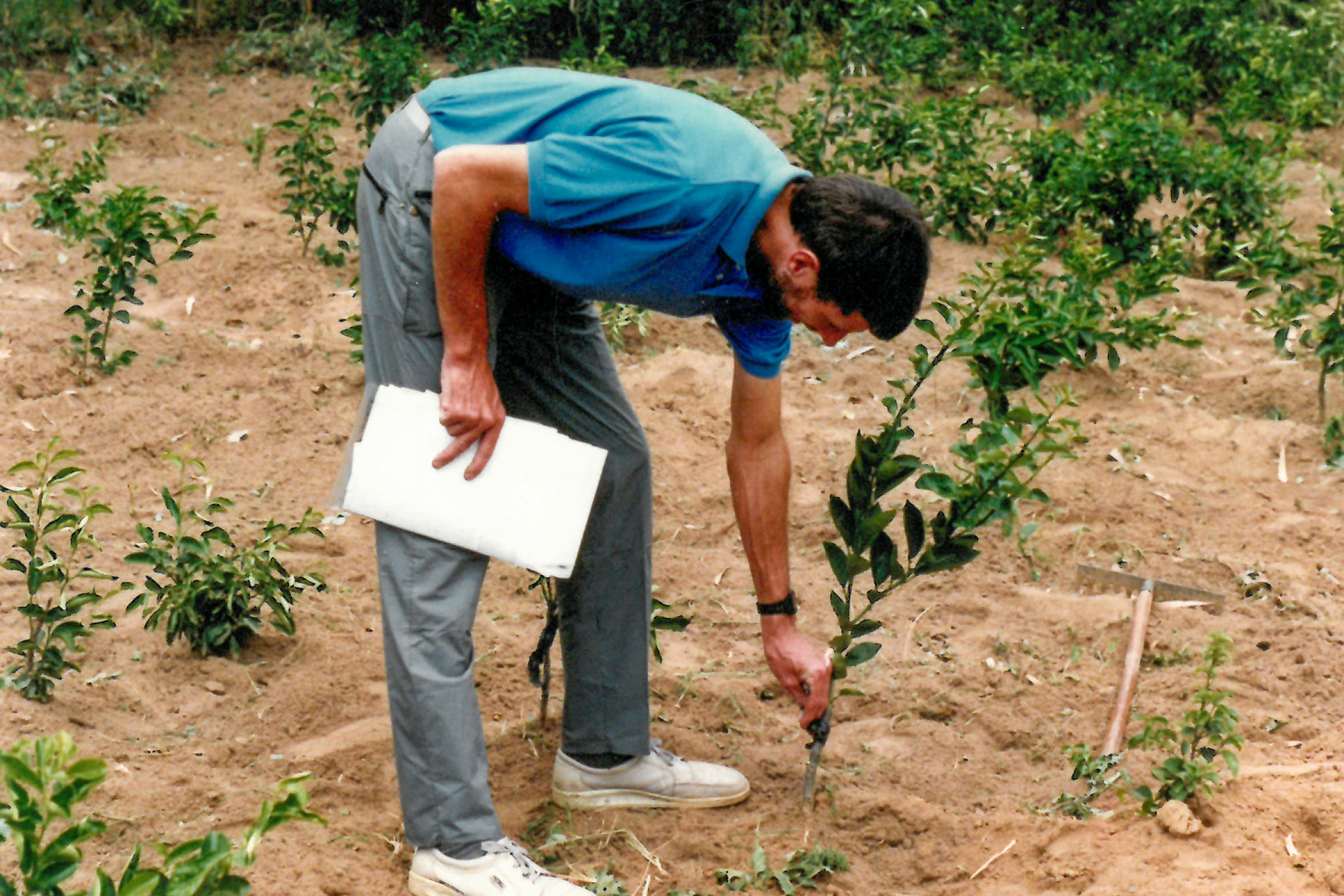
Bobby Waddell in his first LWF job, serving as Agricultural Project Officer for the Tanganyika Christian Refugee Service in Singida, Tanzania in 1987. Photo: Jenny Prior
For someone as hands-on as Waddell, the lengthy protocols required for humanitarian work can be frustrating, a far cry from his first post when “100 percent of our time was spent working with the communities in Tanzania.” LWF was the only operator in the arid Singida region in central Tanzania, he notes, so there were no other organizations competing for funds and no proposals to write. “Donors visited the projects and we sent a couple of reports each year to show how we were using the money,” he recalls.
Waddell himself has played an important role in developing some of the policies and standards that now regulate the work of the LWF and other humanitarian agencies. Following a month-long visit to the Ivory Coast, Liberia, Guinea and Sierra Leone to investigate abuse allegations, he was part of a team that drew up the first Code of Conduct which plays an important role in all LWF’s work. “I like to get things done and see results,” he says, “but patience is another virtue you need for this work which always takes longer than you think.”
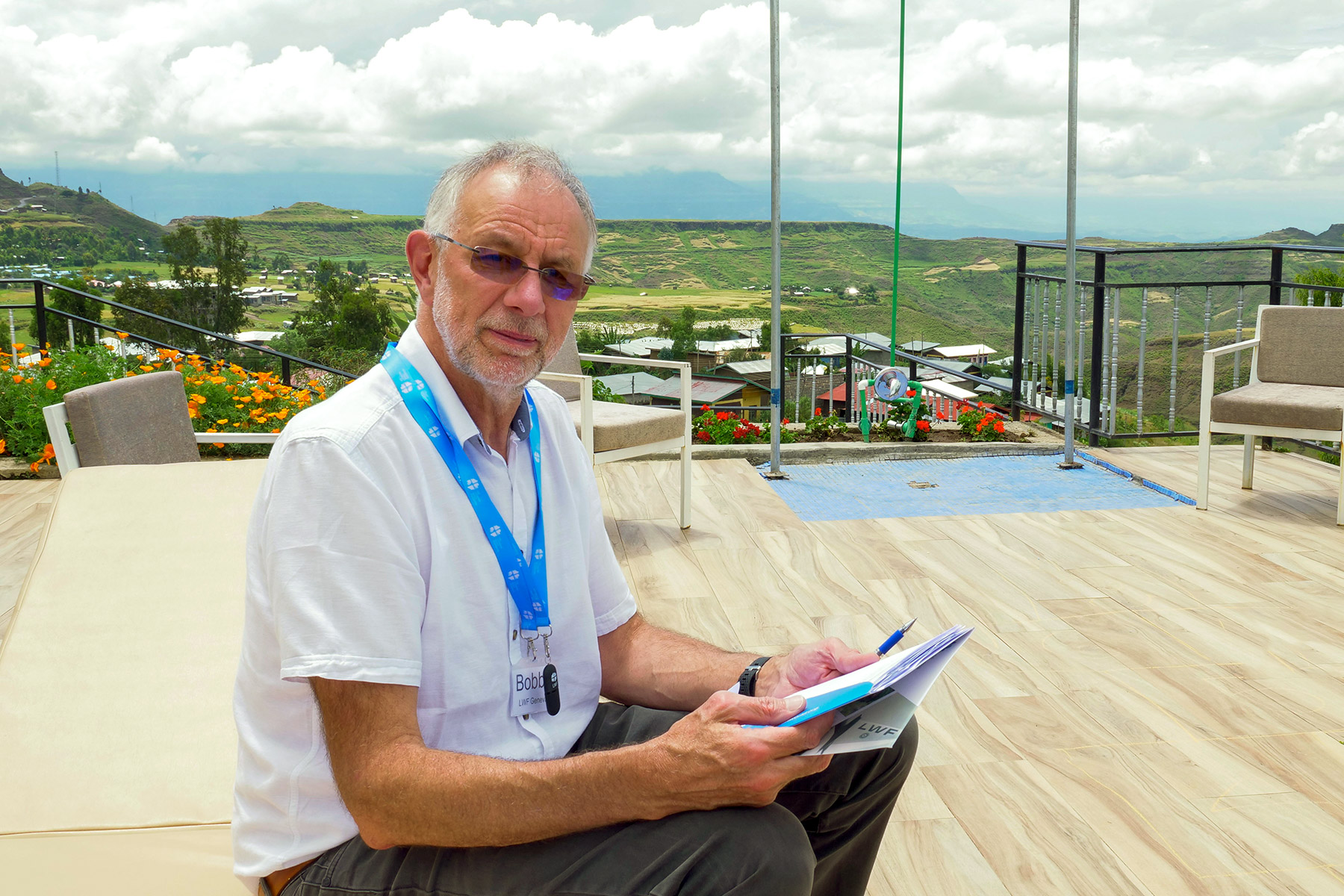
Bobby Waddell, LWF’s Global Funding Coordinator, during a 2019 visit to Lalibela, Ethiopia. Photo: LWF/C. Kaestner
Today, as COVID restrictions ease, Waddell hopes to be back on the move again, visiting projects in remote regions of the world, or travelling across Europe to meet with donors and partner organizations. He hopes to go to Angola, Burundi, Central African Republic and Iraq, the only programs he has never seen first-hand. He is also looking forward to the days when he will have a less demanding schedule, with more time to spend on the golf course in whichever country he chooses for the family retirement home. “Somewhere on the Mediterranean with plenty of sunshine” is his current preference. Wherever he relocates to, he will take a world of adventures with him and leave behind a unique legacy of dedication and support to LWF’s humanitarian work.
LWF/P. Hitchen


